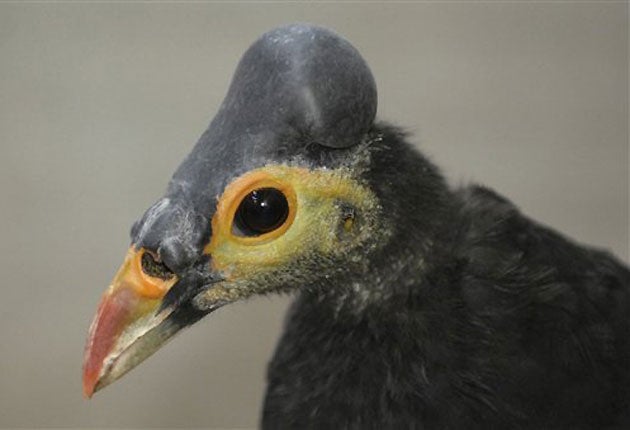The bizarre birds given their own tropical beach

A species of birds that are able to fly immediately after hatching from eggs buried beneath the tropical sand have just been given their own private beach in eastern Indonesia, a conservation group said today.
Maleos, chicken-sized birds with black helmet-like foreheads, number from 5,000 to 10,000 in the wild and can only be found on Sulawesi island. They rely on sun-baked sands or volcanically heated soil to incubate their eggs.
The US-based Wildlife Conservation Society said it has teamed up with a local environmental group to purchase and protect a 36-acre (14-hectare ) stretch of beach in northern Sulawesi that contains about 40 nests.
The environmental groups paid $12,500 for the beach-front property on remote Sulawesi, one of Indonesia's 17,000 islands, to help preserve the threatened species.
"The protected area is already helping raise awareness about this bird," said John Tasirin, WCS program coordinator on the island, adding that is especially significant because humans are the greatest threat to the maleo's survival.
Villagers often dig up the eggs and harvest them for food, he said.
The maleo, which has a blackish back, a pink stomach, yellow facial skin, a red-orange beak, lays gigantic eggs that are then buried in the sand or soil. The chicks hatch and climb from the ground able to fly and fend for themselves.
"The population of maleos are decreasing quite steadily," Martin Fowlie of the Britain-based BirdLife International said of their new white-sand beach. "So any protection is going to be a good thing."
Join our commenting forum
Join thought-provoking conversations, follow other Independent readers and see their replies
Comments
Bookmark popover
Removed from bookmarks